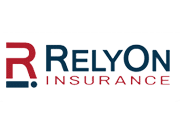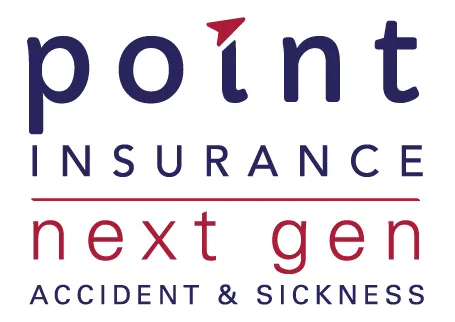Home > Business Insurance > Small Business Insurance
Small Business Insurance
Compare quotes for small business insurance through Savvy's 100% free online quote service right here.
Author
Savvy Editorial TeamFact checked








We’ve partnered with BizCover to bring you a range of business insurance policies to help you compare them side by side.
Small business insurance is crucial for all small businesses. The exact type of insurance you need will depend on your business type. However, whatever sort of insurance you're after, Savvy can assist you to find quotes to compare right here.
Use Savvy's 100% free comparison service to compare quotes from some of Australia’s leading insurers. Compare them side-by-side to help you choose a policy that matches your business needs and budget. Start the process with us today!
What is small business insurance?
Small business insurance is a special type of coverage that helps protect small businesses from risks and problems. It provides financial support if something unfortunate happens that could affect the business.
Having small business insurance gives peace of mind to business owners because it helps cover the costs if something goes wrong. It can help pay for things like damage to property, accidents that happen on the business premises, or if someone sues the business for something.
Small business insurance usually includes two important types of coverage. The first is general liability insurance, which helps if someone gets hurt or property gets damaged because of the business. The second is commercial property insurance, which helps if something happens to the business's physical assets, like a fire or theft.
Small business insurance is important because it helps protect the business and the people who work there. It lets business owners focus on running their business without worrying too much about unexpected problems that could cost a lot of money.
What does small business insurance include?
Small business insurance provides essential protection for businesses, covering a range of risks and liabilities. It offers coverage tailored to the specific needs of small businesses. Let's explore some of the key types of coverage typically included in small business insurance policies:
1. General liability insurance: This coverage safeguards businesses against claims for bodily injury, property damage, and personal injury caused to third parties.
2. Commercial property insurance: Property insurance protects the physical assets of a business, such as buildings, equipment, inventory, and furniture, from risks like fire, theft, and vandalism.
3. Business interruption insurance: Business interruption insurance helps compensate for lost income and ongoing expenses if the business is temporarily unable to operate due to a covered event, such as a fire or natural disaster.
4. Professional liability insurance: Professional liability insurance, also known as errors and omissions insurance, covers businesses against claims of negligence, errors, or omissions in the professional services they provide.
5. Workers compensation insurance: Workers compensation insurance is mandatory in many places and provides benefits to employees who suffer work-related injuries or illnesses. It covers medical expenses and lost wages.
6. Cyber liability insurance: Cyber liability insurance protects businesses from financial losses due to cyber-attacks, data breaches, or other cyber-related incidents.
7. Product liability insurance: Product liability insurance is vital for businesses involved in manufacturing or selling products. It provides protection against claims arising from product defects or injuries caused by the product.
Understanding these different types of coverage is crucial for small business owners to ensure they have the appropriate insurance to protect their assets, finances, and reputation.
How do I compare small business insurance policies?
Choosing the right small business insurance policy is a crucial decision that can safeguard your business from potential risks. Here's a step-by-step guide to help you make an informed choice.
- Assess your business risks: Identify the specific risks your business may face, considering factors like industry regulations, potential hazards, and asset value.
- Understand your coverage options: Familiarise yourself with different insurance types, such as general liability, commercial property, professional liability, and workers' compensation.
- Compare quotes through Savvy: Obtain quotes from multiple providers to compare costs and coverage options.
- Compare coverage benefit limits: Determine the appropriate coverage limits for your business by considering the potential costs associated with risks your business may face.
- Insurance premiums: Over time, you could save tens of thousands of dollars by switching to a cheaper insurance company that offers the same coverage.
- Inclusions: more important than the price of your policy is the insurance coverage you’re offered since a low-cost insurance plan is useless if you aren’t protected in areas that are important to your business.
- Exclusions: check the policy's exclusions as well, so you’re aware of what isn’t covered. If necessary, ask for additional insurance to cover those areas you see as vital to protecting your business.
- Excess amounts: check what excesses are available and consider how much reducing them will increase your premium
- Maximum benefit amount: compare the maximum benefit amount the policy offers, and see how this compares with the other policies you’re looking at.
- Additional benefits: there can be additional benefits to taking out several types of insurance with the same company, such as a bonus month of cover or a no-claims percentage reduction if you purchase multiple types of business insurance together.
- Read the policy documents carefully: Thoroughly review policy terms, conditions, exclusions, deductibles, and additional endorsements or riders.
- Consider bundling options: Explore package policies that bundle multiple coverages, potentially resulting in cost savings.
- Regularly review and update: As your business evolves, regularly assess your insurance needs, updating coverage to align with changes in operations, assets, or risks.
By following these steps and conducting thorough research, you can choose a small business insurance policy that provides adequate protection for your specific needs.
How much does small business insurance cost?
The cost of your small business insurance (which is sometimes called business liability insurance) will depend on how many types of insurance you choose to package together and which specific policies you purchase. It will also depend on several other factors, including:
- the size of your company
- the location of your business
- which industry you’re in
- how many employees you have
- your insurance claims history
Some basic guidelines to cost are:
- around 40% of small businesses pay less than $50 a month for their insurance, with the remainder paying between $50 and $100 a month on average
- for workers compensation insurance, expect to pay somewhere between 1.2% and 2.2% of the cost of your combined payroll, depending on which state in which you’re located
Premium Rating Classifications
Another factor affecting the cost of your insurance is your premium rating classification, which many insurance companies use to assess the risk your company poses based on business activity. This is also known as your industry classification.
Most states now use the Australian and New Zealand Standard Industrial Classification Index, which lists over 525 industries. Each industry has a risk rating based on past insurance history which is expressed as an industry percentage per $100. Higher-risk industrial classifications will result in a higher percentage paid per $100 of insurance offered.
Australia-wide, the riskiest (and therefore most expensive) businesses to insure are in the agriculture, forestry and fishing industries. Next come transport, postal and warehousing businesses. Construction industries come next, closely followed by manufacturing. The lowest-risk industries are finance professionals, telemarketers and some legal professions.
For example, if you’re a dairy cattle farmer wanting insurance in South Australia, there will be a 5.569% industry premium rate applied. However, if you sell photographic equipment in the same state, your industry premium would only be 0.325%.
How do I decide which type of business insurance I need?
Carry out a risk assessment
A risk assessment will help you understand what specific risks your business faces and which risks would threaten the whole viability of your company. This will help you understand what business insurance you need, and what it is you need to protect.
Protect your physical assets
Next, think about what physical assets your business has which need to be insured. This can include your building, your stock, your tools, equipment and computers.
Find out what’s compulsory
You already know that workers compensation insurance is compulsory, but are there any other types of insurance you really must have? For example, do you need professional liability insurance to maintain your professional registration? If so, add this to the list of your ‘must-have’ insurances.
Consider insurance for your income
If the way you make money is disrupted, it could spell trouble for your business. Therefore, look at the way you generate revenue and consider business interruption insurance to help you through tough times if something goes wrong.
Compare quotes through Savvy
Why go anywhere else when you can get all the quotes you need to compare from leading insurers right here? Savvy is a one-stop shop for all your insurance needs, offering a 100% free no-obligation insurance quote service.
Types of business insurance
Covers legal costs and compensation claims if a third party is injured or their property is damaged due to your business activities.
Protects against claims of professional negligence or errors in your work, providing financial coverage for legal costs and damages.
Provides coverage if a product you supply, sell or manufacture causes injury or property damage, covering legal costs and compensation claims.
It is mandatory in Australia and can cover the wages of employees who are unable to work due to injury or illness incurred while on the job.
Protects your business property and assets from damage or loss due to events like fire, theft, or natural disasters.
A comprehensive policy combining public liability, property, and contents insurance, tailored for small businesses.
Financial protection if your business is unable to operate due to a covered event, covering lost income and ongoing expenses.
Covers loss or damage to your business equipment, stock, and contents due to events like theft, fire, or natural disasters.
Provides income protection in case of injury or illness, offering financial support during the recovery period.
Protects directors and officers from legal claims related to their management decisions and actions, covering legal costs and damages.
Covers your business assets, including equipment, machinery, and inventory, against loss or damage caused by specified events.
Provides coverage for liability, loss, or damage related to the operation of drones or unmanned aerial vehicles (UAVs).
Insurance that covers the cost of professional fees associated with responding to tax audits, including accountant fees and legal representation costs.
Reimburses fixed business expenses if you're unable to work due to illness or injury, ensuring continuity of essential financial commitments.
This cover protects against claims of property damage or bodily injury by a third party, covering legal costs and compensation claims.
A package of insurance suitable for small businesses that combines various different types of insurance to protect business owners against multiple risks.
Covers loss or damage to your business equipment and machinery including portable items due to events like theft, fire, or accidental damage.
Provides coverage for loss or damage resulting from theft or burglary at your business premises, safeguarding your assets and inventory.
Protects against financial losses and liabilities arising from cyber-related incidents, including data theft, cyber attacks and ransomware demands.
Covers the cost of repair or replacement of glass windows and doors and other glass fixtures and fittings due to accidental damage or breakage.
Enjoy the Savvy difference when you compare insurance with us
100% free comparison service
Find the best possible insurance coverage for your business quickly and easily here with Savvy's 100% free comparison service.
Compare trusted partners
With multiple trusted insurance partners across the country, you can enjoy high-quality online comparisons all in one place right here.
Skip the hassle and save time and money by comparing with Savvy to get instant online insurance quotes for convenient comparisons.
More of your questions about small business insurance answered
Yes – if you’re a sole trader or a tradie, you should still have business insurance, particularly public liability insurance as a minimum. There are special packages available specifically designed for sole traders and the self-employed.
Yes – even if you work mainly from home, you may still need public liability insurance if you have any contact at all with members of the public, or have any property belonging to others at your home.
No – generally, small business insurance won't include coverage for work vehicles, so you’ll need to insure your vehicles separately through commercial vehicle insurance.
Yes – the good news is that business insurance is considered part of the cost of doing business, so you can claim it back in your tax return.
Getting a bundled business package with several types of insurance together is often a cheaper option than having several separate policies. The exception is workers compensation insurance, which in many states is only available through one State Insurer which specialises in workers comp. However, it’s worth comparing a range of policies with Savvy before deciding on an insurance package so you can be sure you’re getting the best coverage at the right price.
Business insurance by industry
Helpful guides on business insurance
Disclaimer:
Savvy is partnered with BizCover Pty Ltd (ABN 68 127 707 975, AFSL 501769) to provide readers with a variety of business insurance policies to compare. Savvy earns a commission from BizCover each time a customer buys a business insurance policy via our website. We don’t arrange for products to be purchased from these brands directly, as all purchases are conducted via BizCover.
Savvy does not compare all business insurance policies or providers currently operating in the market. Any advice presented above or on other pages is general in nature and doesn’t consider your personal or business objectives, needs or finances. It’s always important to consider whether advice is suitable for you before purchasing an insurance policy.
For any further information on the variety of insurers compared by BizCover or how their business works, you can read their Financial Services Guide.
















